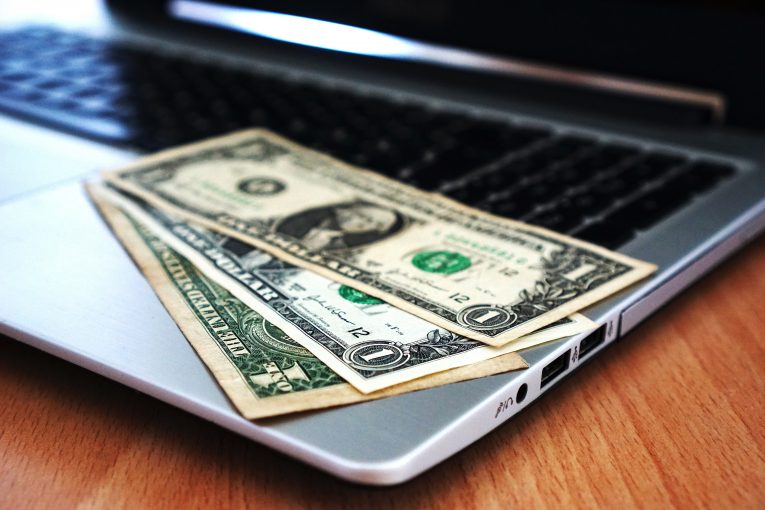How to Keep Your Financial Information Secure Online?

There was a time when the Internet was, for the regular user, at least, a means of accessing slow-loading web pages that were full of text (in Times New Roman, of course), not very colorful images, and low-resolution GIFs. Things have changed. Nowadays people work on the Internet. They pay their bills online and shop for everything from private jets to grocery items. Lots of money change hands every second, and inevitably, some of it gets stolen. More of your financial information is available online than you could possibly imagine, and it's more important than ever to take every necessary precaution to protect it.
This is not as straightforward as you might think. The Internet is vast, and there are countless ways of stealing sensitive data. There's no step-by-step guide which, once completed, will guarantee that your money will never be stolen. If you are aware of the dangers, however, you can save yourselves quite a lot of headaches. Here are a few things you should keep in mind.
Table of Contents
Passwords are important
Far too many people continue to secure their accounts with passwords like "123456." Even more people reuse passwords on many websites. To help you better understand the problem, we'll go down the cliché path, and we'll use the age-old analogy that likens a password to a physical key. You don't want a key to open too many doors, and you don't want it to be easy-to-replicate. By using (and reusing) weak passwords, you're just asking for trouble.
Be careful where you shop
With every Tom, Dick, and Harriette selling things online, the prices for the items you're looking for vary wildly sometimes. When you're bargain-hunting, it's easy to end up buying something from a website that you've never heard of before. This could be a problem potentially.
The number of dishonest sellers is not that huge, but people do encounter them every now and then. And in some cases, operators of small online shops simply don't have the know-how or the resources to properly secure their websites. Make sure you treat less popular online shops with extra caution, or the discount they offer could end up actually costing you a lot of money. Always check for the green padlock in the address bar and be sure to review the different payment methods. If you can process the transaction through an established service like PayPal, consider doing it because that way, the website's owners won't be tasked with storing your financial information. They'll get the money, and you'll get the item you're looking for, eventually.
Email scams are still a thing
You probably know already that the "Nigerian prince" who promises to send you a colossal amount of money after you wire transfer a "small" fee is not real. This doesn't mean that these types of scams don't exist anymore, though.
In fact, on Monday, the US Department of Justice announced that an international law enforcement operation resulted in the arrest of 74 individuals. The criminal group contacted business owners and individuals through email and used social engineering to trick victims into transferring money to bank accounts controlled by the crooks. Law enforcement officers seized more than $2 million during the arrests, and they believe that they'll be able to recover a further $14 million worth of fraudulent transactions.
All in all, if you think that email scams are now dead, you need to think again.
Phishing is even more popular with cybercriminals
The arrested criminals from the previous paragraph have perfected their social engineering to a fine art. Less competent crooks go down the easy path, and instead of tricking you into sending them money, they redirect you to fake login pages where you enter your username and password. Phishing is an attack that's relatively cheap to pull off. Phishing kits are bought and sold for peanuts, and often, the cybercriminals don't even need to host them. They just compromise a legitimate website and place their fake login forms there.
Thanks to the ubiquity of smartphones, we're now seeing more and more instances of two other types of phishing attacks. Smishing (coming from SMS phishing) relies on a text message instead of an email. Once again, a link leading the victim to a fake login page is included in the SMS. Although it's rarer, vishing (or voice phishing) is also a phenomenon. During a vishing attack, an attacker calls a victim over the phone and, using sophisticated social engineering techniques, tricks them out of their login credentials.
Be careful who you give your usernames and passwords to and don't click any links or files unless you're absolutely positive that they're coming from someone you know and trust.
After reading all this, you might be feeling a bit nostalgic about the days when Times New Roman was all the rage. You might even be tempted to stop using the World Wide Web to its full potential. The truth is, however, the Internet is no longer just a convenience, it's now a part of our everyday lives, and ignoring it is just not practical. Being careful, however, is.








